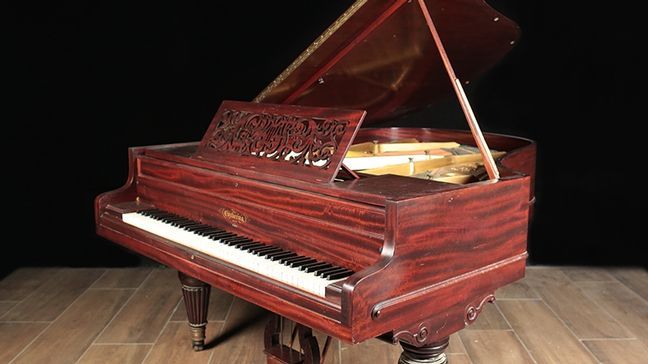Some time ago, I went to a flea market looking for a part for my Harley. I was looking for a very specific part that had slotted strips on the footpegs. I had gotten the originals in California and could not find a replacement after snapping off on a tight corner. After rummaging through a mound of junk, I finally discovered what I had been seeking. I didn’t hide my emotions well either. So when I asked the old gentleman tending the booth how much he wanted, he replied, “What’s it worth to ya’?”
This is a conundrum. I am in a flea market, so part of me thinks it should be $5. I had been searching for the part for months and had not come across anything close, and now I found exactly what I wanted. But it wasn’t a matching pair, and he certainly did not know that I only needed one. That fact is, I would have paid up to $150 for that part. But instead low-balled him and replied, “Not more than $10!”. “Well then, you got yourself a deal,” he responded.
I have come to discover there is a vast difference between worth and value. Something may have great worth to us personally that is not shared by others. When we tried to sell the home where we birthed our children, we were HIGHLY offended when the buyer counter offered tens of thousands below our asking price. We turned the offer down. THE AUDACITY! The reality was, we still could have made decent money, but in our minds, the home was worth FAR MORE than it was valued. Value is the real cost of an object.
I once owned a 1904 Chickering Grand Piano. It was a eight-foot natural wood made in Boston. The company did not survive the Great Depression. My particular model was appraised at $38,000. I loved that piano and to me, it was worth every stinking penny! When we sold our first home, unfortunately, I would need to part ways with my grand. I listed it locally. I was thrilled when a local university reached out with interest to buy it. They did not have a Chickering in their music department and really wanted the brand that great German composer Franz Liszt demanded. The thought of adding $40k to my bank account was exhilarating! When I got the offer of $350, I truly believed they had accidentally left off some zeroes. I decided to keep it listed for a few more weeks. After about a month with absolutely no interest, I sold my $38,000 piano for $350. Even though the piano had a very high “worth,” it simply was not “worth” that much to the university. And in the end, it was only valued at $350.
Spending someone else’s money works the same way. Stewardship is the principal of caring for another’s resources. When it comes to other’s wealth, the amount of worth we place upon that resource is directly tied to the amount of benefit that I stand to reap. Consider the parable of the talents. Since it is not money that I personally worked hard to earn, it has almost no value to me. If I can leverage it to my advantage, it may have worth.
I was recently helping a relative get their car fixed. Despite being 1500 miles away, I arranged a tow truck and worked with a local shop to get the repair done. I suspected two possibilities. One would be a few hundred dollars, the other around $1,500. A few days had gone buy when I was informed by my relative how much the repair was. I chocked. That repair should only have been less than $400, but I was on the hook for just under $1000. I reached out to the shop that I had arranged the repair. I asked why he didn’t just install a refurbished part from a local vendor rather than overnighting a part from California for $508? A refurbished part would have been around $40! To my chagrin, I discovered that my relative had already approved all the work, parts had been ordered, and it would be done the following day. I was (AND STILL AM) furious. Why would someone assume they could blow so much of my money? Value vs. worth.
Having their vehicle had significant worth to this person. But my personal wealth had little worth. So the value was placed upon personal gain rather than being a steward of the money that did not belong to them. So I get stuck with a bill that is several hundred dollars overpriced, and they get their car back?
I wonder if this is how God feels every day that we live and breathe. Am I just low-balling my way through life? Is there more to this thing than just trying to get all I can get? After all, it was Yeshuah that said, “For this reason I say to you, her sins, which are many, have been forgiven, for she loved much; but he who is forgiven little, loves little.” May we live a life that makes our Heavenly father smile with pride rather than weep in shame and embarrassment.



